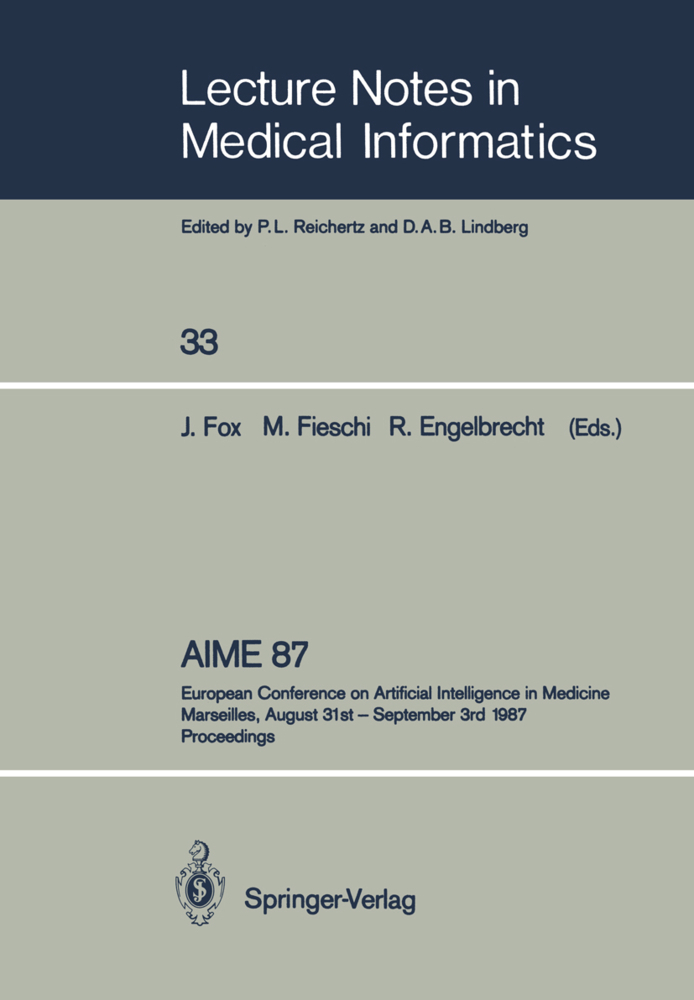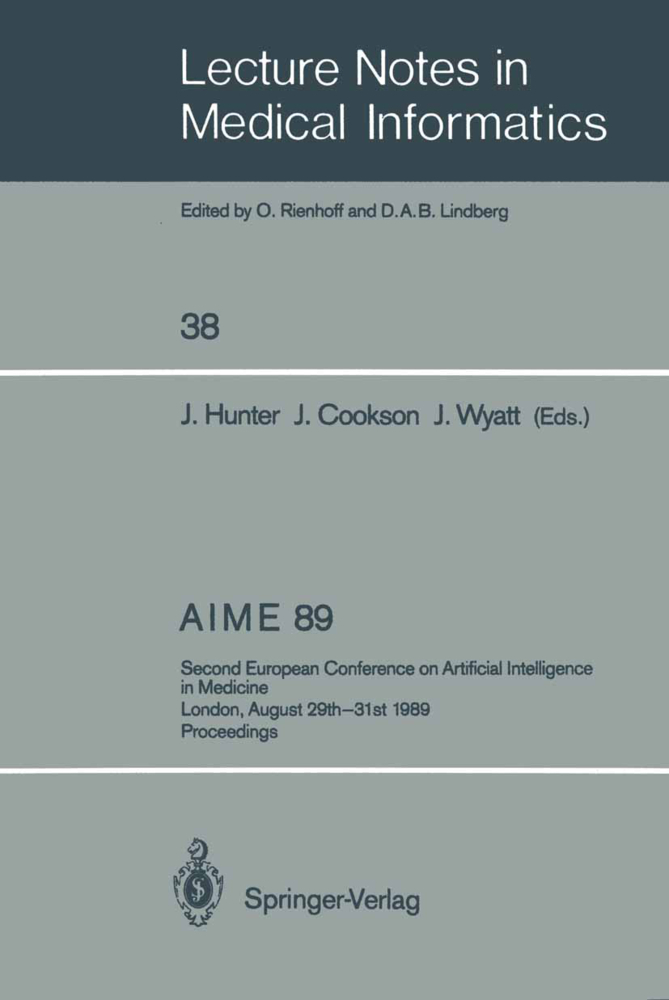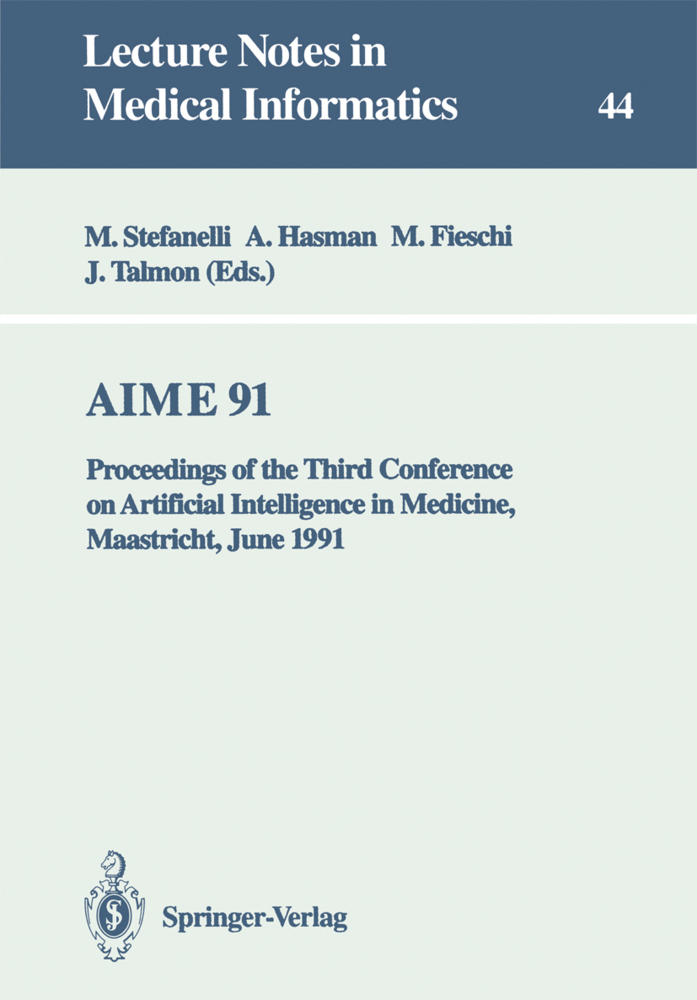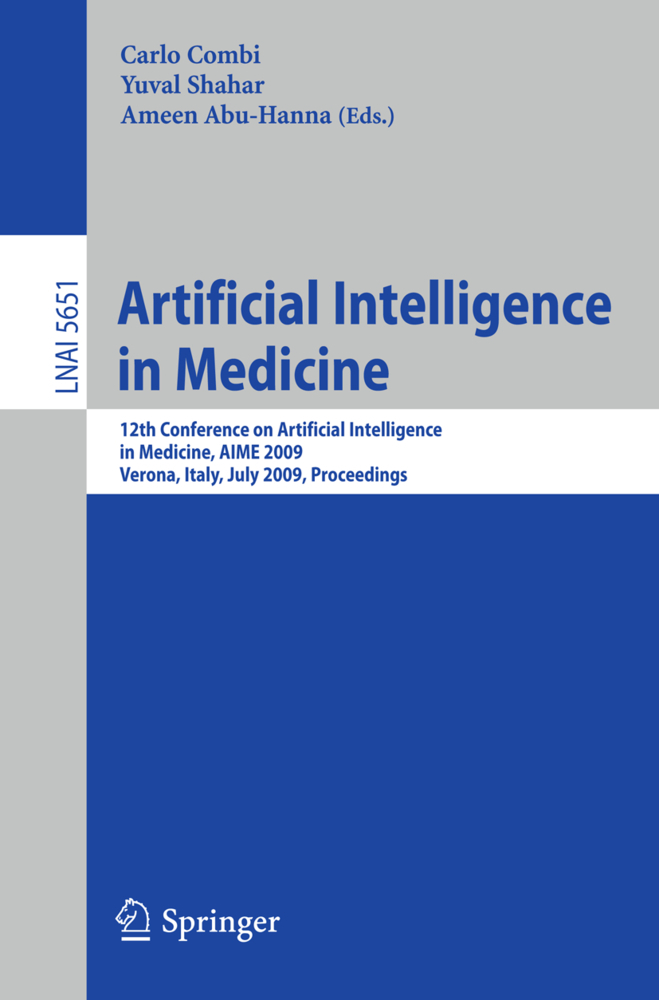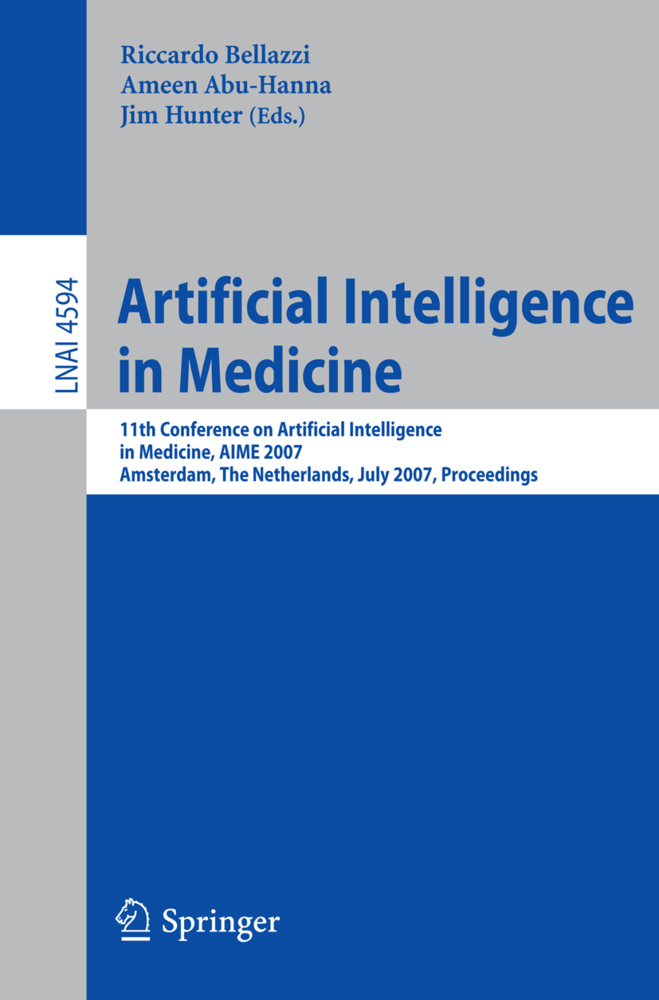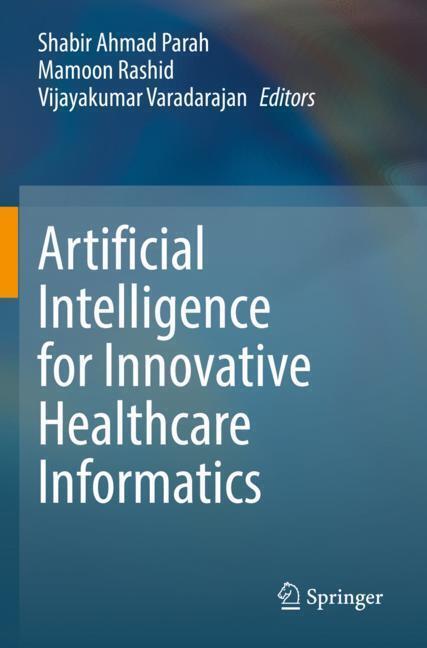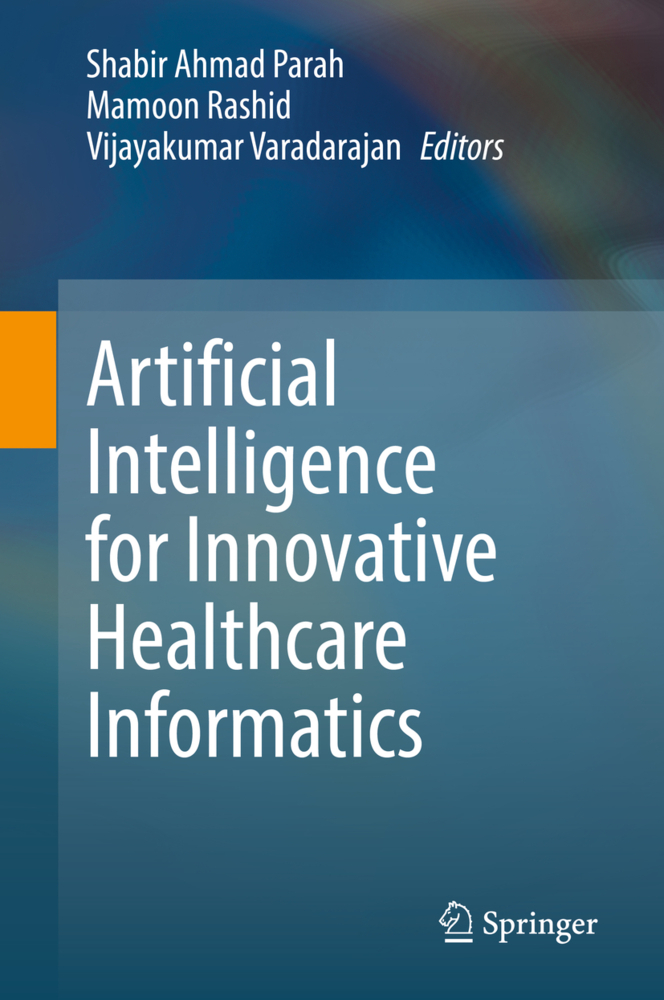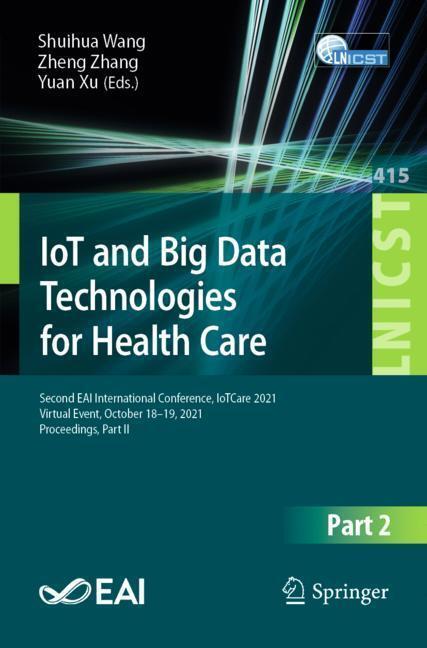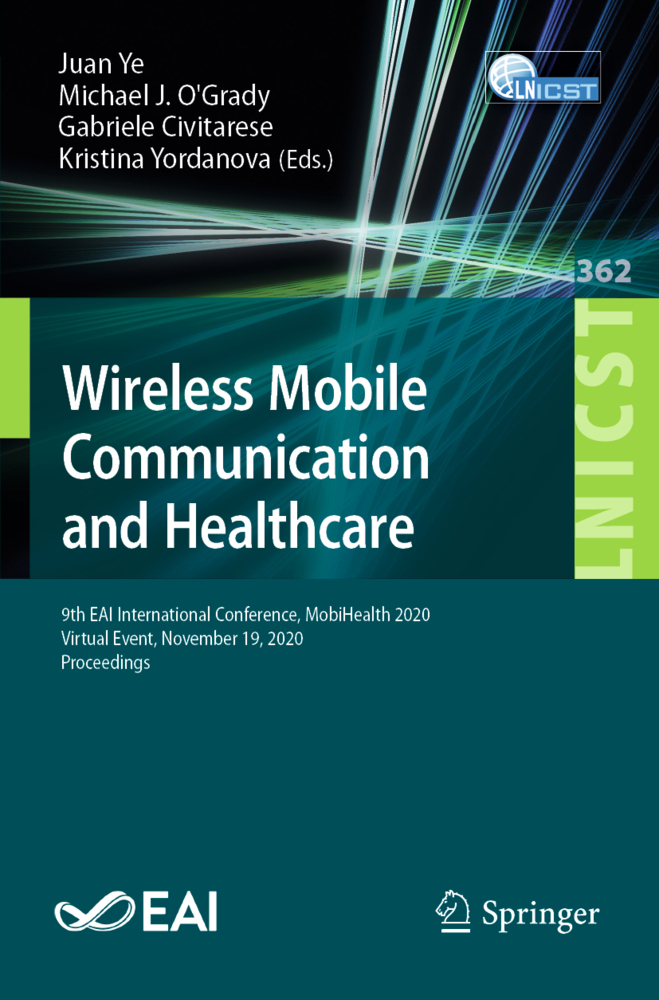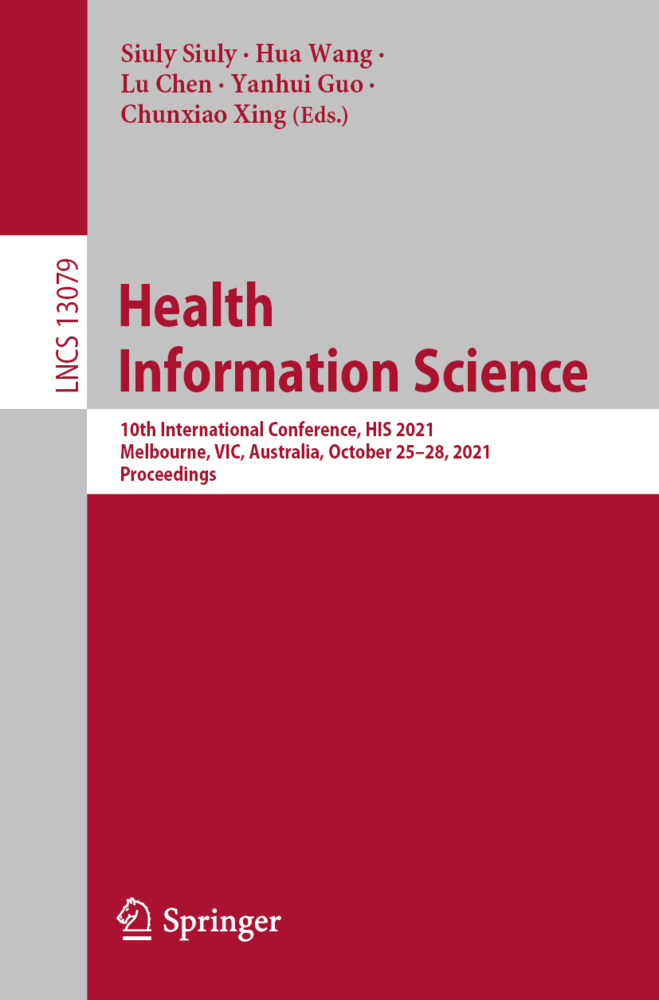AIME 87
European Conference on Artificial Intelligence in Medicine Marseilles, August 31st - September 3rd 1987 Proceedings
AIME 87
European Conference on Artificial Intelligence in Medicine Marseilles, August 31st - September 3rd 1987 Proceedings
The current scarcity of expert systems where the reasoning is based on Bayesian probability theory may be due to misconceptions about probabilities found in the literature. As argued by Cheeseman (1985), these misconceptions have led to the attitude: "The Bayesian approach doesn't work - so here is a new scheme". Several of these expert systems based on ad hoc "probability" concepts have been successful in a number of ways, demonstrating the necessity of being able to handle uncertainty in medical expert systems. They also demonstrate the need for a theoretically sound handling of uncertainty. In Andersen et al. (1986) it was postulated that knowledge organized in a causal network can be used for a unified approach to the main tasks of a medical expert system: diagnosis, planning of tests and explanations. The present paper explores this postulate in a causal probabilistic network. It also provides a practical demonstration that the problems supposedly associated with probabilistic networks are either non-existent or that practical solutions can be found. This paper reports on the methods implemented in MUNIN* -an expert system for electromyography (EMG) (Andreassen et al. 1987). EMG is the diagnosis of muscle and nerve diseases through analysis of bioelectrical signals from muscle and nerve tissue. In Andreassen et al.
Inference Engineering through Prototyping in Prolog
The Evaluation of Clinical Decision Support Systems: A Discussion of the Methodology used in the ACORN Project
Matching Patients: An Approach for Decision Support in Liver Transplantation
Clinical Applications (1)
An Expert System for Diagnosis and Therapy Planning in Patients with Peripheral Vascular Disease
An Expert System for the Classification of Dizziness and Vertigo
The Senex System: A Microcomputer-Based Expert System Built by Oncologists for Breast Cancer Management
Qualitative Reasoning
The Use of QSIM for Qualitative Simulation of Physiological Systems
Qualitative Description of Electrophysiologic Measurements: towards automatic data interpretation
A Qualitative Spatial Representation for Cardiac Electrophysiology
Knowledge Acquisition and Representation
Knowledge Acquisition in Expert System Assisted Diagnosis: A Machine Learning Approach
Knowledge Representation for Cooperative Medical Systems
A Representation of Time for Medical Expert Systems
Management of Uncertainty
TOULMED, an Inference Engine Which Deals With Imprecise and Uncertain Aspects of Medical Knowledge
Coherent Handling of Uncertainty Via Localized Computation in an Expert System for Therapeutic Decision
MUNIM - On the Case for Probabilities in Medical Expert Systems - a Practical Exercise
Rule Based Expert Systems in Gynecology: Statistical Versus Heuristic Approach
Knowledge Engineering Tools
A Radiological Expert System for the PC - Design and Implementation Issues
A PC-Based Shell for Clinical Information Systems With Reasoning Capabilities
The Kernel Mechanism for Handling Assumptions and Justifications and its Application tothe Biotechnologies
General Session
Man-Machine Interaction in Check
The Oxford System of Medicine: A Prototype Information System for Primary Care
Clinical Applications (2)
Evaluating the Performance of Anemia
Computer Aided Diagnosis and Treatment of Brachial Plexus Injuries
Representation of Embryonic Development and its Anomalies
A Micro Computer Based Decision Support for Lipid Disorder.
Methodology
"Intermed": A Medical Language InterfaceInference Engineering through Prototyping in Prolog
The Evaluation of Clinical Decision Support Systems: A Discussion of the Methodology used in the ACORN Project
Matching Patients: An Approach for Decision Support in Liver Transplantation
Clinical Applications (1)
An Expert System for Diagnosis and Therapy Planning in Patients with Peripheral Vascular Disease
An Expert System for the Classification of Dizziness and Vertigo
The Senex System: A Microcomputer-Based Expert System Built by Oncologists for Breast Cancer Management
Qualitative Reasoning
The Use of QSIM for Qualitative Simulation of Physiological Systems
Qualitative Description of Electrophysiologic Measurements: towards automatic data interpretation
A Qualitative Spatial Representation for Cardiac Electrophysiology
Knowledge Acquisition and Representation
Knowledge Acquisition in Expert System Assisted Diagnosis: A Machine Learning Approach
Knowledge Representation for Cooperative Medical Systems
A Representation of Time for Medical Expert Systems
Management of Uncertainty
TOULMED, an Inference Engine Which Deals With Imprecise and Uncertain Aspects of Medical Knowledge
Coherent Handling of Uncertainty Via Localized Computation in an Expert System for Therapeutic Decision
MUNIM - On the Case for Probabilities in Medical Expert Systems - a Practical Exercise
Rule Based Expert Systems in Gynecology: Statistical Versus Heuristic Approach
Knowledge Engineering Tools
A Radiological Expert System for the PC - Design and Implementation Issues
A PC-Based Shell for Clinical Information Systems With Reasoning Capabilities
The Kernel Mechanism for Handling Assumptions and Justifications and its Application tothe Biotechnologies
General Session
Man-Machine Interaction in Check
The Oxford System of Medicine: A Prototype Information System for Primary Care
Clinical Applications (2)
Evaluating the Performance of Anemia
Computer Aided Diagnosis and Treatment of Brachial Plexus Injuries
Representation of Embryonic Development and its Anomalies
A Micro Computer Based Decision Support for Lipid Disorder.
Fox, John
Fieschi, Marius
Engelbrecht, Rolf
| ISBN | 978-3-540-18402-7 |
|---|---|
| Medientyp | Buch |
| Copyrightjahr | 1987 |
| Verlag | Springer, Berlin |
| Umfang | X, 255 Seiten |
| Sprache | Englisch |

